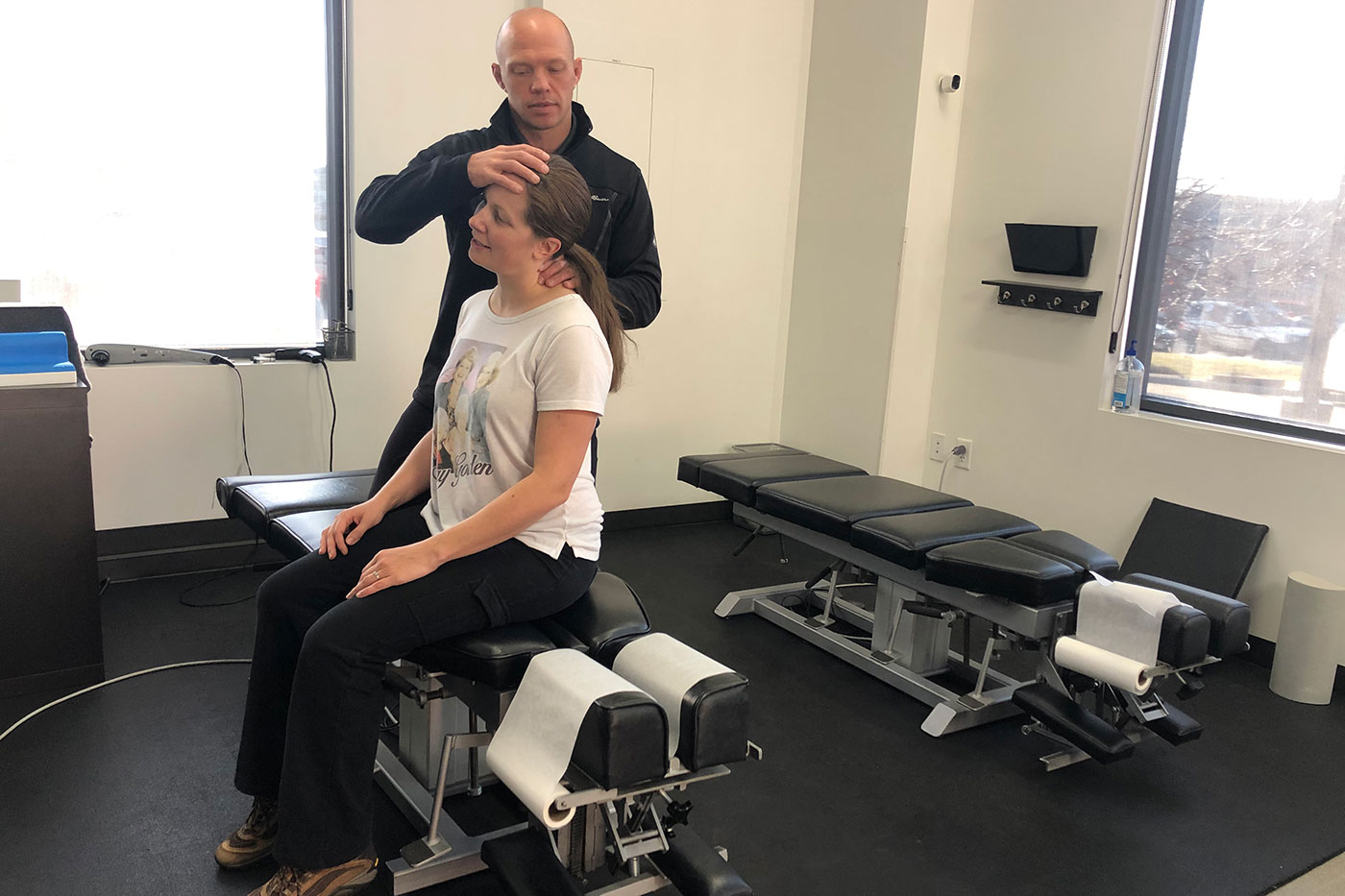Migraine Treatment in Fort Collins, CO
Is our migraine pain treatment right for you? (Take the following quiz)
Discover Migraine Relief Today
Don't Wait!
Schedule your new patient consultation now.
Take advantage of our limited time offer. Call or schedule online today!
Signs and Conditions
Migraines manifest in various forms, with some individuals experiencing an aura—a series of sensory disturbances that can include flashes of light, blind spots, or tingling. These auras typically precede the headache phase, signaling its onset. However, not all migraines include an aura; those without are known as common migraines. The key symptoms to watch for include:
- Severe throbbing or pulsating pain
- One-sided headache
- Nausea and vomiting
- Sensitivity to light and sound
- Fatigue following the headache
Understanding the difference between a standard headache and a migraine is crucial, as migraines are a neurological disease involving nerve pathways and brain chemicals, leading to a range of symptoms beyond just head pain.
Migraines are not just headaches; they are the result of complex neurological events that can be triggered by a variety of factors. These triggers are not universal; what may cause a migraine in one person might not affect another. However, understanding common triggers can help individuals manage and possibly prevent the onset of migraines. Here are the categories of common migraine triggers:
Physical Triggers
Excessive Fatigue: Overexertion or lack of rest can lead to migraines, highlighting the importance of balance and rest.
Inadequate Sleep: Both too little and too much sleep can serve as triggers.
Bad Posture: Poor spinal alignment can contribute to tension in the neck and shoulders, which can lead to migraines.
Physical Overexertion: Intense exercise or physical labor can trigger migraines in some individuals.
Low Blood Sugar: Skipping meals or fasting can lower blood sugar levels, potentially triggering migraines.
Jet Lag: The disruption of the body’s normal rhythm due to travel across time zones can trigger migraines.
Hormonal Triggers
Estrogen Fluctuations: Women may experience migraines related to their menstrual cycle due to changes in estrogen levels.
Oral Contraceptives: Birth control pills, which contain estrogen, can affect migraine patterns.
Environmental Triggers
Temperature Changes: Sudden changes in weather or temperature can provoke migraines.
Bright Lights: Intense or flickering lights, including screens, can be a trigger.
Stuffy Rooms: Poor ventilation may lead to migraines.
Loud Noises: Sudden or prolonged loud sounds can trigger migraines.
Strong Smells: Perfumes, paint, and other strong odors can initiate migraines.
Second-hand Smoke: Exposure to smoke can be a significant trigger for some people.
Dietary Triggers
Alcohol: Especially red wine, which contains tyramine, a known migraine trigger.
Caffeine: Both excessive intake and withdrawal from caffeine can trigger migraines.
Cheese and Chocolate: These contain substances that can affect blood vessels and trigger migraines.
Citrus Fruits: For some, these can be a trigger, possibly due to certain chemicals they contain.
Processed Foods: Foods high in nitrates, MSG, and artificial preservatives can trigger migraines.
Irregular Meal Times: Skipping meals or fasting can trigger migraines in some individuals.
Dehydration: Not drinking enough water is a common and easily avoidable trigger.
Emotional Triggers
Stress: Perhaps the most common trigger, stress can lead to tension headaches that evolve into migraines.
Excitement: Surprisingly, positive emotions can also trigger migraines in some people.
Depression and Anxiety: These emotional states can affect hormone levels and thus can trigger migraines.
Shock: A sudden shock or surprise can trigger a migraine.
Our Treatment Approach
At our clinic in Fort Collins, we recognize that traditional medicinal therapies often fall short for migraine sufferers, with 40% of those taking medications still having unmet treatment needs. Our approach is rooted in the understanding that migraines are multifaceted and can be triggered by various factors, including physical, hormonal, environmental, dietary, and emotional elements. Identifying and managing these triggers is a cornerstone of our treatment philosophy.
Our unique treatment strategy includes:
- Lifestyle Modifications: We guide patients through changes that can mitigate migraine frequency and intensity, such as improving sleep patterns, managing stress, avoiding known dietary triggers, staying hydrated, and maintaining regular exercise.
- Corrective Chiropractic Care: We utilize advanced spinal adjustments to alleviate nerve pressure and realign the neck and back bones. This method has been shown to reduce migraine days and the intensity of pain, offering a significant improvement in the quality of life for our patients.
Choosing Square One Health for your migraine treatment means opting for a path that goes beyond temporary fixes. Our patients have reported long-term relief from migraines, thanks to our comprehensive care that addresses the root cause of migraines rather than just masking symptoms. Don’t let migraines control your life. Contact us at (970) 286-7793 or visit our Schedule Now page to schedule a consultation. Take the first step towards reclaiming your comfort and well-being.
FAQs
What exactly is a migraine?
A migraine is a neurological condition characterized by intense headaches with throbbing pain, often accompanied by nausea, vomiting, and sensitivity to light and sound.
How can I tell if I’m having a migraine or just a headache?
Migraines are typically more severe than common headaches and are often accompanied by additional symptoms like nausea and sensitivity to stimuli. If you experience auras or one-sided head pain, it’s more likely to be a migraine.
What are common triggers for migraines?
Triggers vary but can include hormonal changes, certain foods and drinks, stress, environmental factors like bright lights or loud noises, and physical factors such as poor sleep or posture.
Can lifestyle changes really help with migraines?
Yes, lifestyle changes can significantly impact the frequency and severity of migraines. Adequate sleep, stress management, hydration, regular exercise, and avoiding triggers can all contribute to better migraine management.
What makes chiropractic care effective for migraines?
Chiropractic care, particularly spinal adjustments, can reduce nerve pressure and tension, which are often underlying factors in migraine development. This can lead to fewer migraine days and less intense pain.
Is chiropractic care suitable for everyone with migraines?
While many patients experience relief with chiropractic care, individual conditions vary. We recommend scheduling a consultation to discuss your specific situation and determine the best treatment plan for you.
Possible Conditions
Possible Treatments
Schedule Now!
Reach out to us for any questions you might have!

